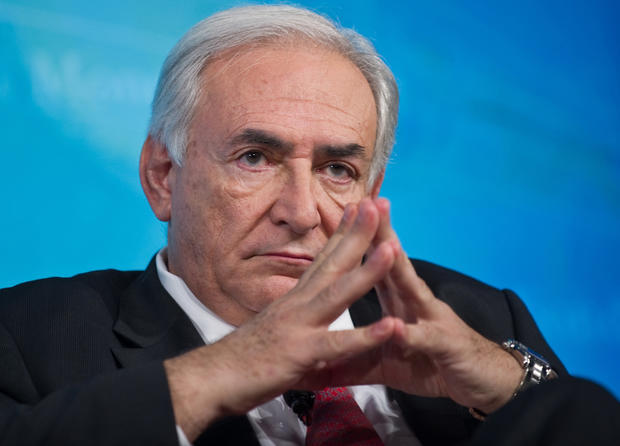IMF head's scandal may affect U.S. budget debate
After the Managing Director of the International Monetary Fund was arrested for an alleged sexual assault in New York City, the Obama Administration may reasonably be wondering if the scandal with fuel Republican opposition to IMF support for the world's struggling economies.
The impact of the scandal, whether Mr. Strauss-Kahn is found guilty or not, is to delay important and immediate negotiations for distressed economies, including Greece, Portugal, Ireland as well as politically-fragile Pakistan and for post-Mubarak Egypt.
The scandal comes at a time of vulnerability for the IMF, when a growing number of Republicans in Congress are questioning the bailout policies.
Rep. Cathy McMorris Rodgers (R-Wash.) opposes American money being used in some of the IMF bailouts, having said: "All across America, people are suffering from bailout fatigue. At a time when America is already borrowing 40 cents of every dollar it spends, does it make sense for us to borrow more money (much of it from China) to help bailout Europe?"
Republicans in Congress are also trying to take control of the economic steering wheel traditionally held by the President.
Lawyer: IMF head denies N.Y. sex-assault charges
An evolving Republican proposal - which the Democratic House leadership is unlikely to bring to a floor vote - would direct the Treasury secretary to vote against any I.M.F. assistance to European Union nations until every member of the EU brought its debt-to-gross-domestic-product ratio down to below 60 percent, Wall Street Journal blogger Bob Davis wrote.
The scene may be set for a bit of a showdown between Congress and the President. President Barack Obama has asserted in a signing statement after a House vote on an I.M.F. provision that he doesn't recognize Congress' ability to tell the administration how to vote at the I.M.F., Davis wrote.
The I.M.F. and the World Bank have been beset by more than their share of scandals related to both personal relationships and corruption. All too often there seems to be something about these institutions - funded by U.S. taxpayers and other countries - that make them places of bad behavior.
These institutions are classic sinecures, bureaucratic hiding places where, unlike the Department of Motor Vehicles in the U.S., these civil servants are paid hefty salaries for their work and have lavish expense accounts. That is why the scandal might just provide fuel to those who oppose the work of the IMF in the wobbly developing nation economies.
Strauss-Kahn, a potential presidential candidate in France, had brought the IMF to the front burner in overhauls of European economies that were reeling from the recent world economic downturn and he had received praise for his handling of troubled economies.
Treasury Secretary Timothy F. Geithner, the U.S. representative at the Fund, has to be worried about next steps in his effort to persuade Strauss-Kahn to pressure China to increase the value of its currency and help U.S. exports at a time when the world economies as well as the leadership of the IMF are wobbly.

